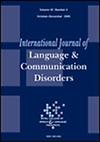Neonatal Nurses’ Understanding of the Factors That Enhance and Hinder Early Communication Between Preterm Infants and Their Parents: A Narrative Inquiry Study
Abstract
Background
Infants born preterm are at high risk of facing difficulties with acquiring speech, language and communication skills. Research on the direct benefits of parent–infant communication in neonatal units is limited. This study recognises that although neonatal nurses regard early communication as important, there is scope to develop a wider range of resources to help support professionals’ understanding of the importance of communication in neonatal care.
Aim
To explore neonatal nurses’ understanding of factors that can enable or hinder early communication and interaction between preterm infants and parents within a neonatal unit setting.
Methods and Procedures
This study employed a narrative inquiry approach with nine neonatal nurses, selected through purposive sampling. Narrative interviews investigated nurses’ views and understanding of the enablers and challenges to communication in this patient group, along with their role in enhancing early communication between infants and parents. Data reporting was undertaken using the Consolidated Criteria for Reporting Qualitative Studies (COREQ), aligning with Enhancing the QUAlity and Transparency of Health Research (EQUATOR) framework.
Outcomes and Results
Narrative analysis revealed the following four themes: the importance of education and experience in neonatal care; supporting parents of infants receiving neonatal care; encouraging communication strategies; the impact of limiting parental presence and wearing facemasks.
Conclusions and Implications
Neonatal nurses commented that using early communication strategies with infants and supporting parents to learn how to communicate directly with their infant is essential. However, none were able to fully describe the key components of early communication from a linguistic perspective, nor give specific examples beyond skin-to-skin care, bonding, reading infant cues and hearing familial voices during conversation and reading. Although these are very important antecedent skills that provide a framework for developing communication, they are not always a direct means to enhance language development specifically. As preterm infants are at high risk of altered language and communication development, a real need exists for neonatal nurses to develop linguistically rooted methods to support communication for parents and their infants, in conjunction with allied healthcare professionals such as speech and language therapists. This support can enable the development of positive communication, enriched and extended after leaving the neonatal unit.
WHAT THIS PAPER ADDS
- Encouraging and supporting parents to learn to develop early communication and interaction skills with their preterm infants, when experiencing neonatal care, is recognised as being important; previous research has clearly identified these infants as being at high risk of speech, language and communication difficulties. These complications, if they arise, are known to impact future outcomes, including educational achievements along with social and friendship skills. Neonatal nurses in conjunction with key allied healthcare professionals such as speech and language therapists are in a prime position to support parents in this vital area of care.
- Our study highlights that although neonatal nurses regard early communication as an important part of their role, it identifies a need for them to be further informed and educated about the specifics of early communication, the associated risks and the potential impact on language that poor, unenriched communication environments can lead to. Importantly, although some studies have investigated aspects of early preterm infant–parent interaction, there is still a need for further in-depth investigation into early parent communication confidence and skills, particularly in relation to supporting linguistic development by neonatal nurses and allied healthcare professionals, including speech and language therapists.
- Collaboration between neonatal nurses and other professionals, in particular speech and language therapists, is essential so that preterm infants and their families can experience language-rich learning environments within a neonatal unit; parents can then be supported to use tailored strategies to enable positive language experiences when discharged home. Speech and language therapists working with neonatal nurses can substantially enhance the quality of infant–parent interactions in neonatal environments through direct modelling, education and the creation of resources for both families and neonatal staff, which includes accurate information related to a linguistic framework, on which future work will focus and investigate further.

 求助内容:
求助内容: 应助结果提醒方式:
应助结果提醒方式:


